“If the school has several defects and there is this opportunity, what is the reason for us not to use it”? The question, by Maria Beatriz Fernandes, from the 11th year, summarizes what the launch of the Participatory Budget (OP) of Schools, this Wednesday, February 13th, in Faro. The Minister of Education was a real one man show and listened carefully to the nine proposals presented under a program that makes democracy happen in schools.
This is an initiative that is now in its third edition and that wants to «improve knowledge and literacy in relation to the election and voting processes», as explained by minister Tiago Brandão Rodrigues.
Students are challenged to come up with ideas, to campaign with their colleagues and to vote, on Student Day (24 March), for what they consider to be the proposal that can most contribute to improving the school where they study.
“Basically, we want students in the 3rd cycle and secondary education also to be aware of the importance of budgeting and of issues related to financial literacy,” said Tiago Brandão Rodrigues.
As part of this Participatory Budget, which covers more than half a million students, the Ministry of Education will transfer, to each educational establishment, with students from the 3rd cycle and/or secondary education, an extra amount of 1 euro per student (500 euros being the minimum value).
For the Secondary Tomás Cabreira, stage of the national launch, the amount is already defined: 1200 euros. Is very? It's too little? Does not matter. Ideas are already simmering and were presented by the students to a Minister of Education who led the assembly always in a good mood.
There are those who want tablets and laptops for the Library, a terrace next to the students' bar, a school radio, TC FM, the purchase of another table. ping pong and of material for sports and leisure or even the change of reprographic facilities.
The audience, full of students, listened to the proposals of schoolmates, applauded and laughed with the ease of Brandão Rodrigues, who was not shy about calling Teresa Sustelo, a student who proposed the purchase of tablets for the Library, a «marketing star» .
"Education is far from perfect, it is true, but it is we, students, who can improve the country in the future," said the young student to applause from all: minister, Rogério Bacalhau, president of the Chamber of Faro, who welcomed the “excellent Government initiative”, and students.
For Teresa, "it is very important that projects of this magnitude can be developed." "It develops a critical spirit and makes us change things that are wrong in our school to make us feel better here," he added.
Tiago Brandão Rodrigues, in turn, considered that, «above all, it is important for students to learn what it means to elucidate our target audience». "Today they realized here that, if they didn't clarify their colleagues, the chances of someone trusting them decrease," he added.
The initiative has another effect: that of putting young people to go to the polls to vote on proposals. “It is also important for them to understand that when they are abstaining, they are moving away from their ability to participate. A student told me clearly: when we vote, we can decide», she said.
On this World Radio Day, the minister also did not forget the anniversary and assumed himself as an "addict" to this means of social communication. In a corner of the room, to Radio Kids, the first radio for children in Portuguese, broadcast the entire session over the Internet.
Later, in the afternoon, the Rádio Universitária do Algarve (RUA) FM will also tell, through its broadcast, what this class was, a real “lesson”, as the minister of Education said.
And, with so much ease, can some of the students be politicians in the future? In the end, Tiago Brandão Rodrigues was certain: «they here today were, clearly, full body politicians».
Photos: Pedro Lemos | Sul Informação
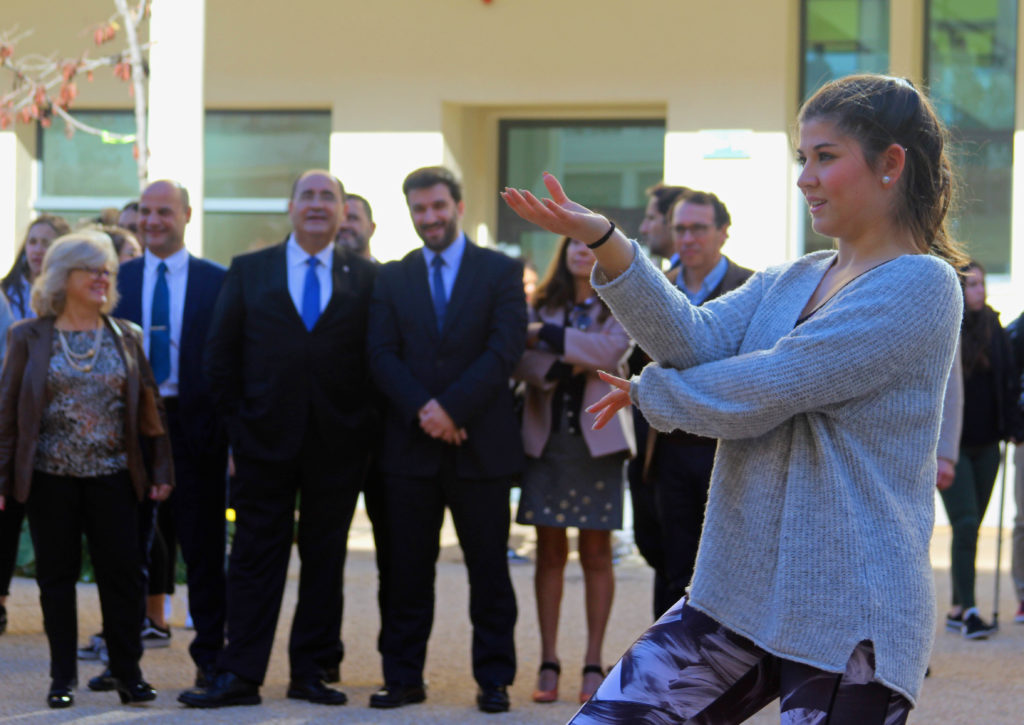
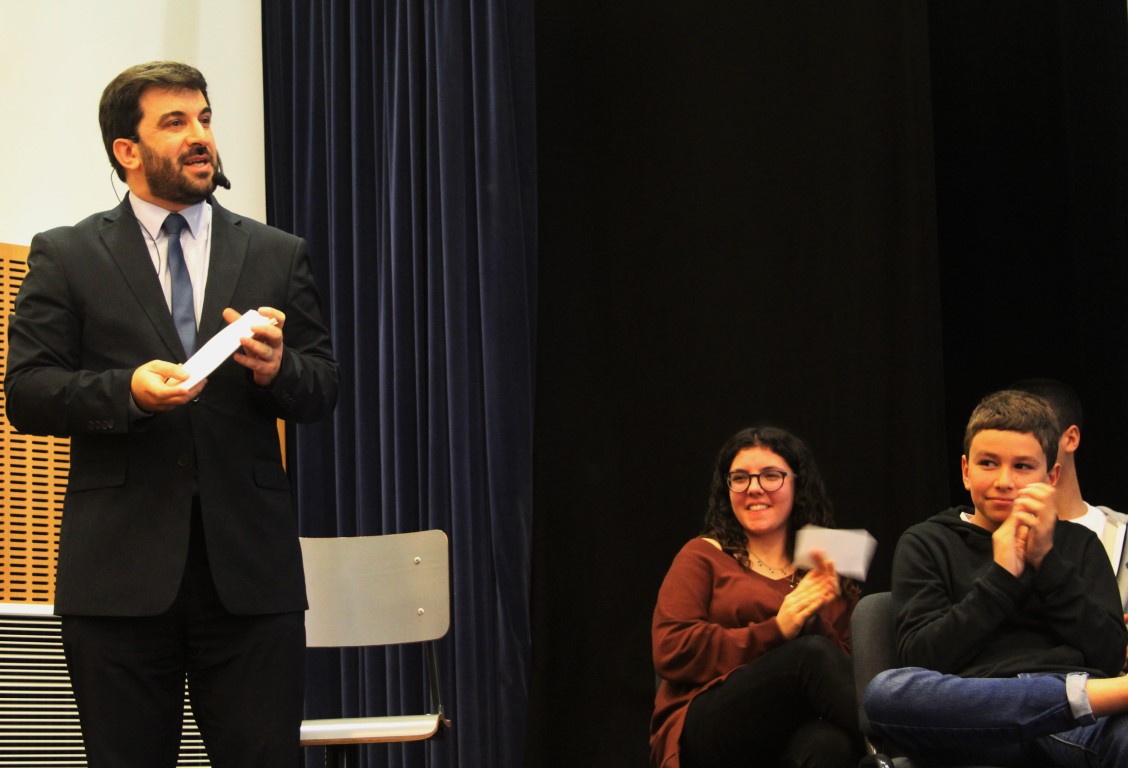
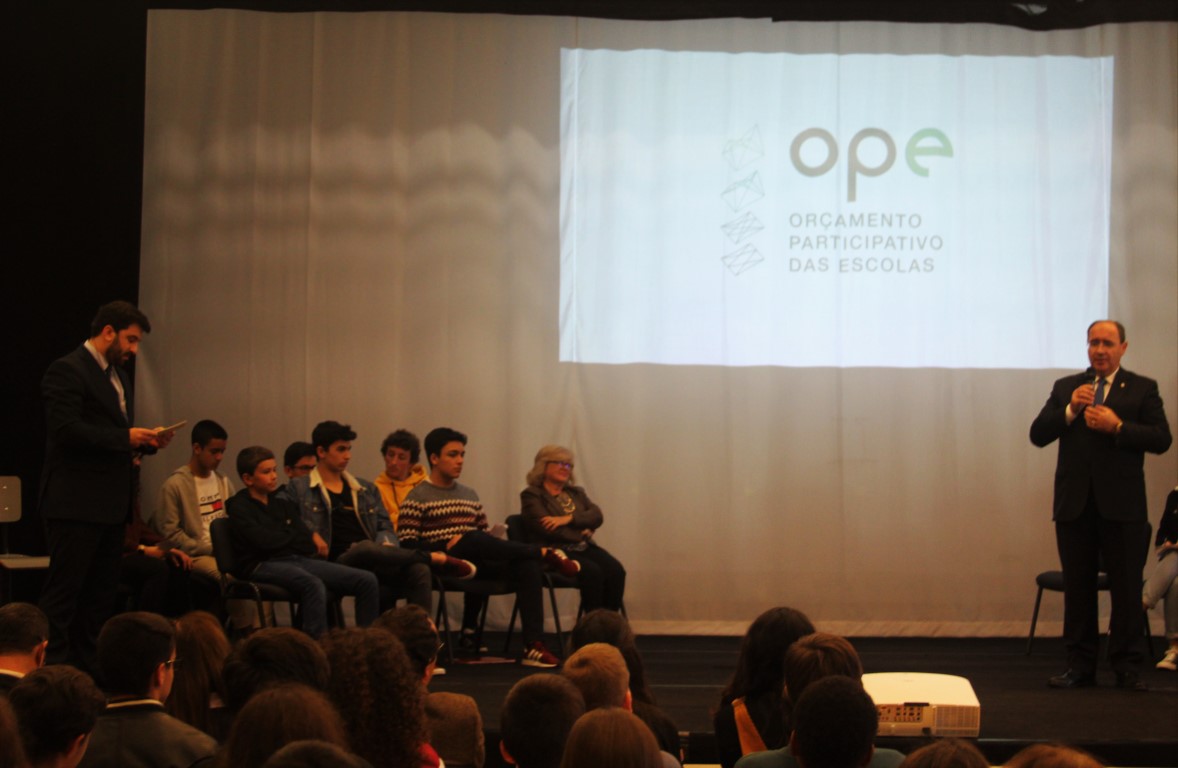
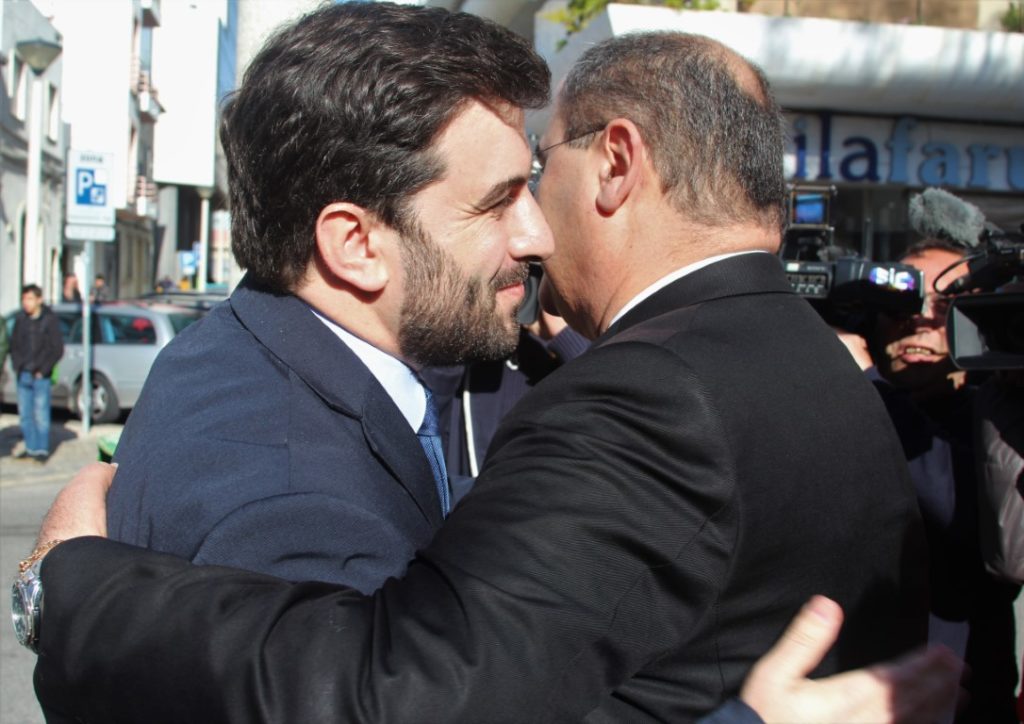
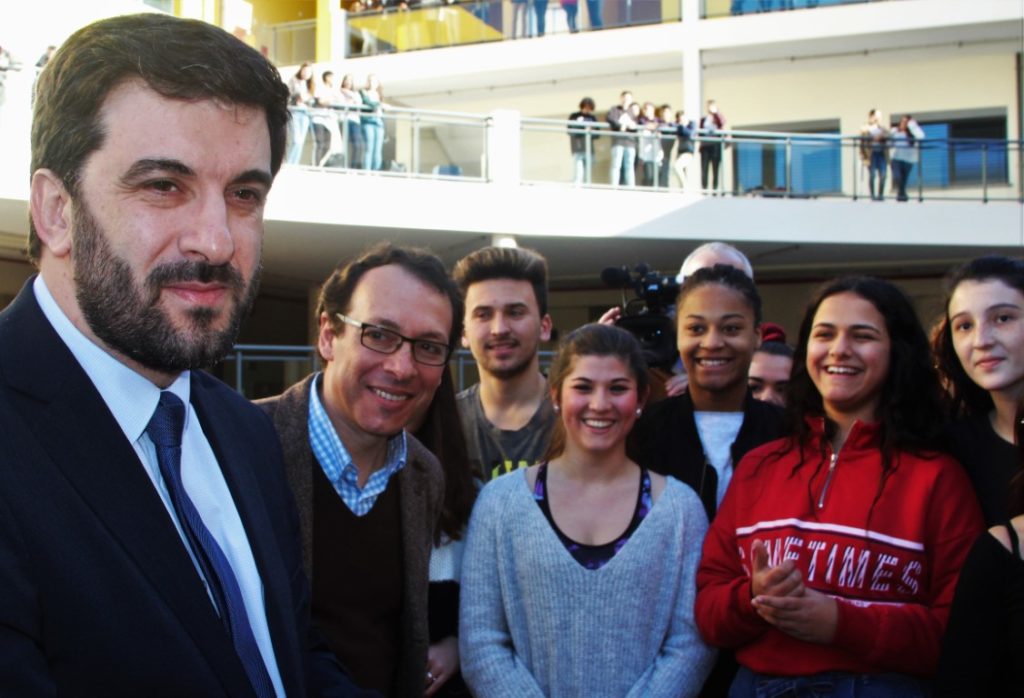
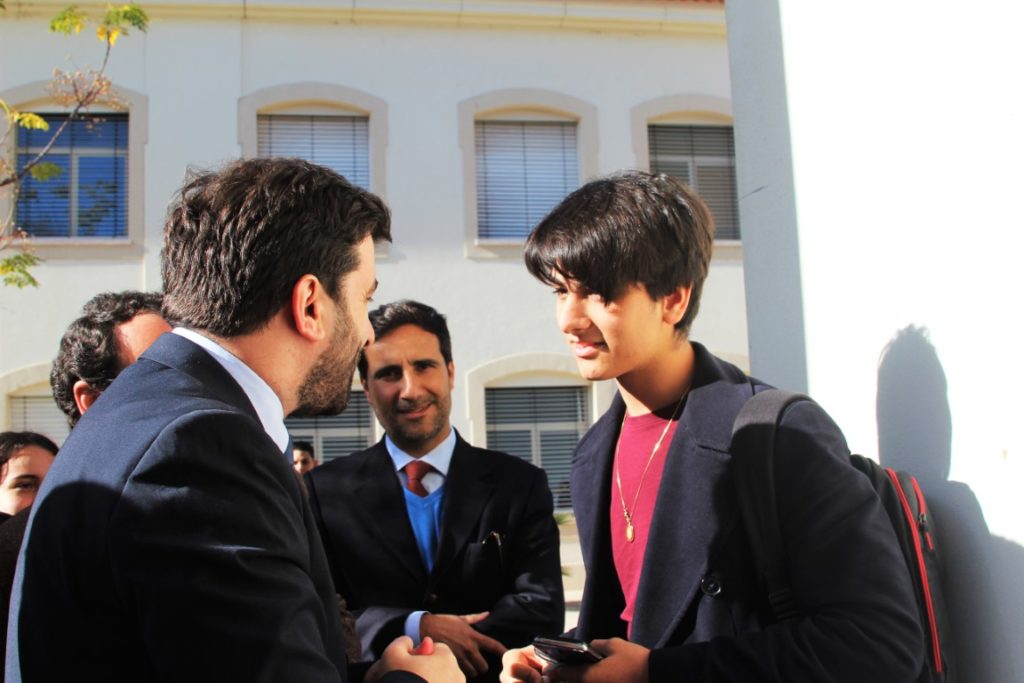
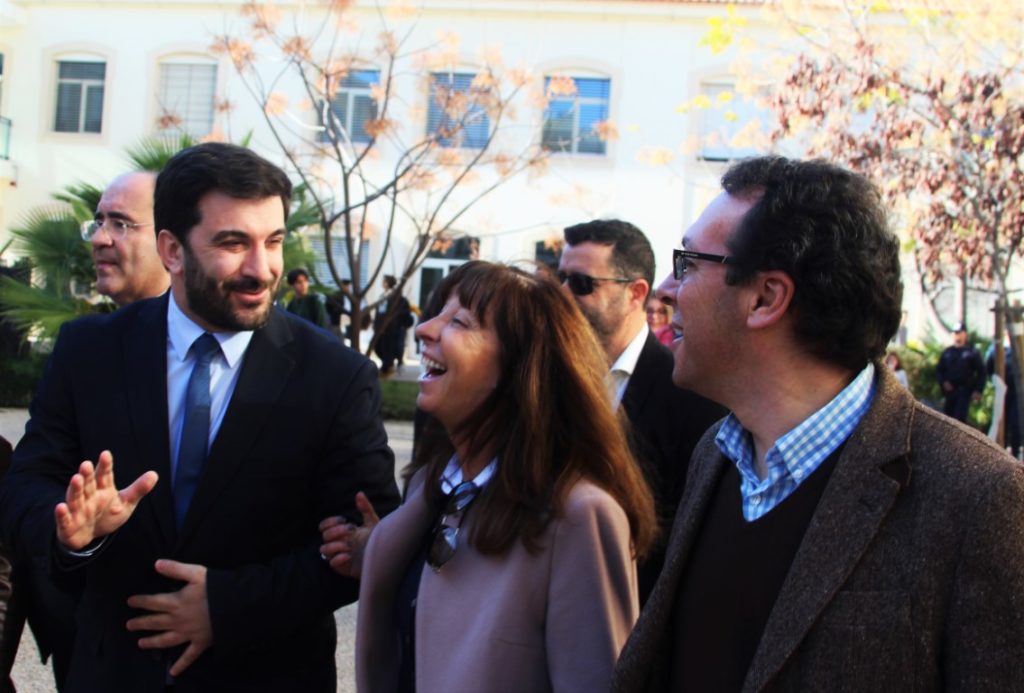
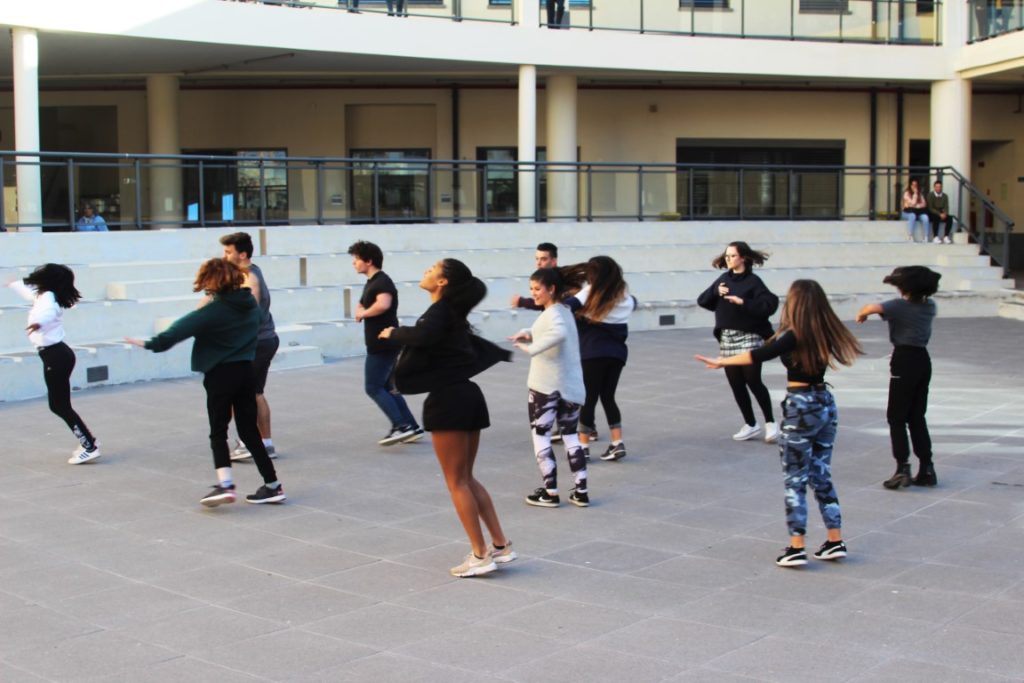
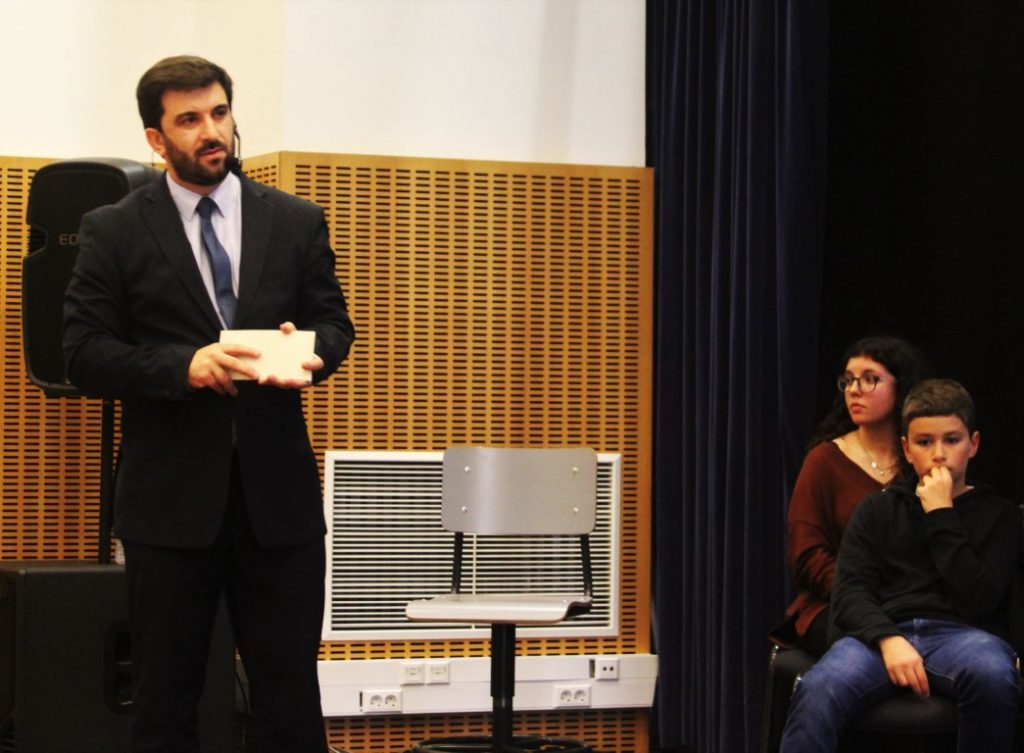
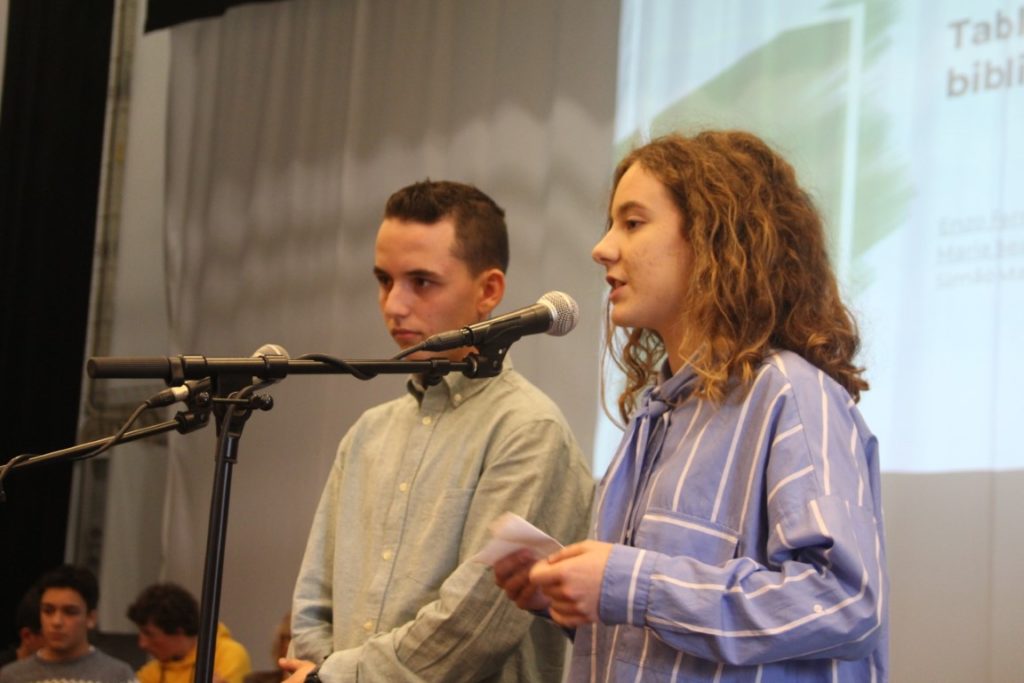
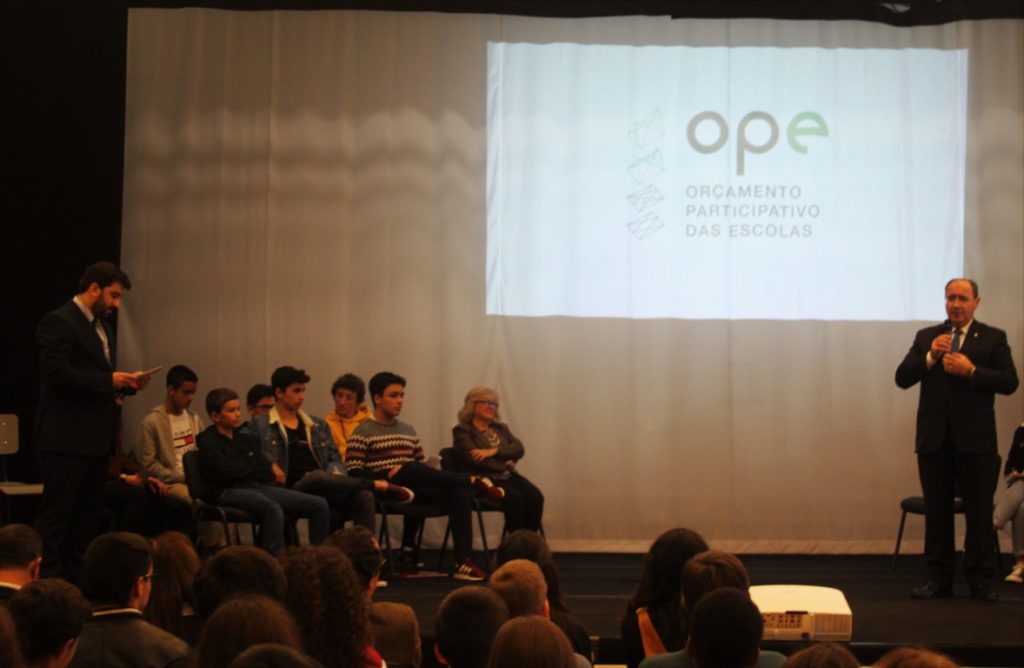
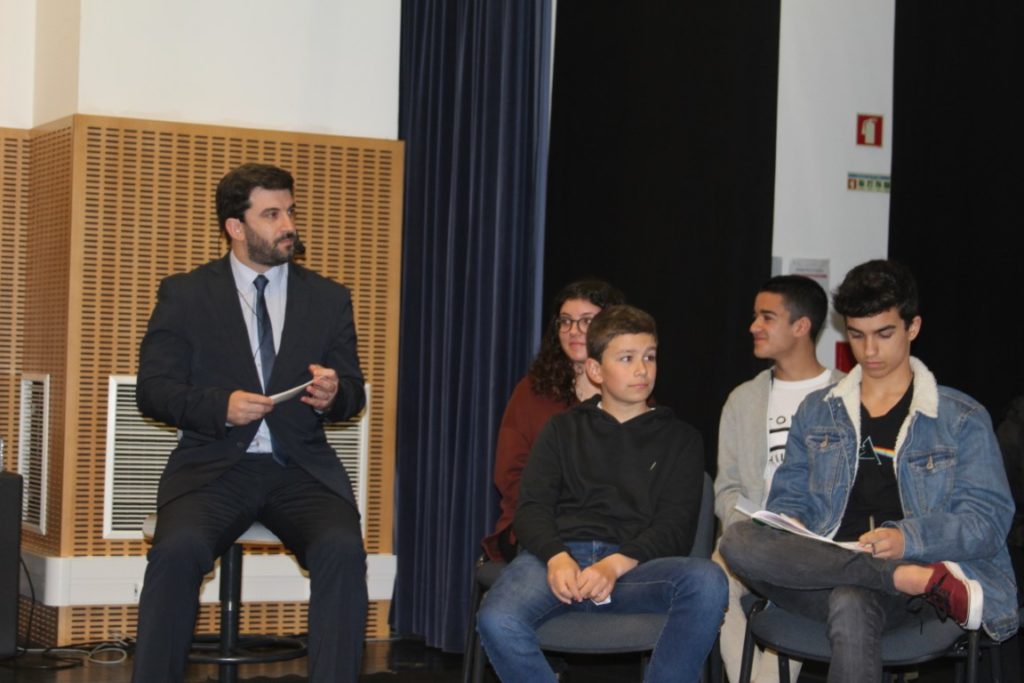
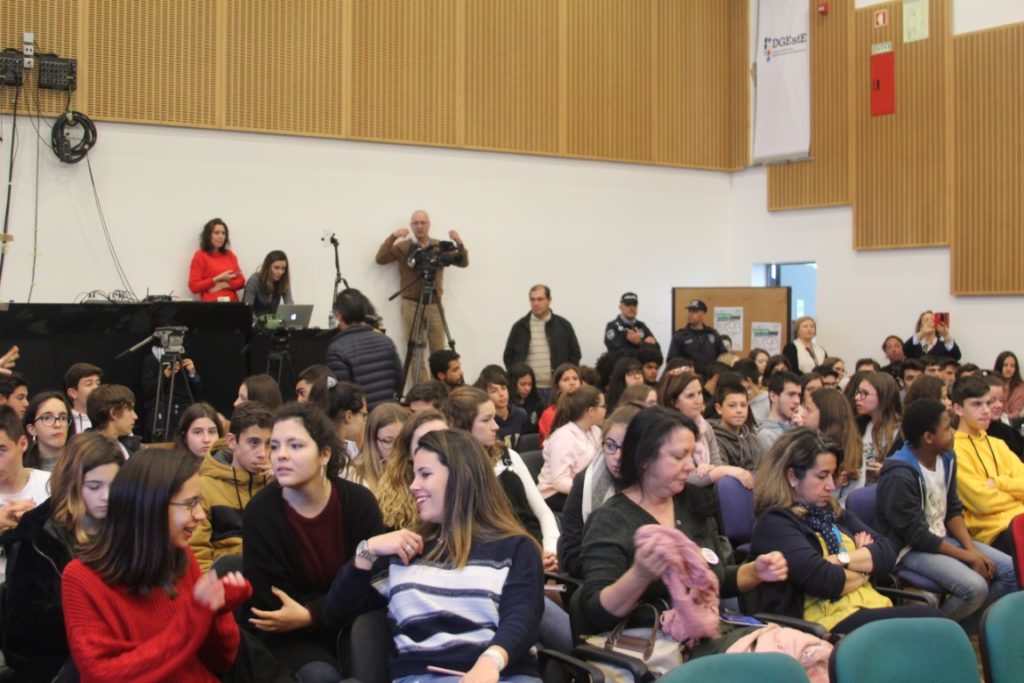
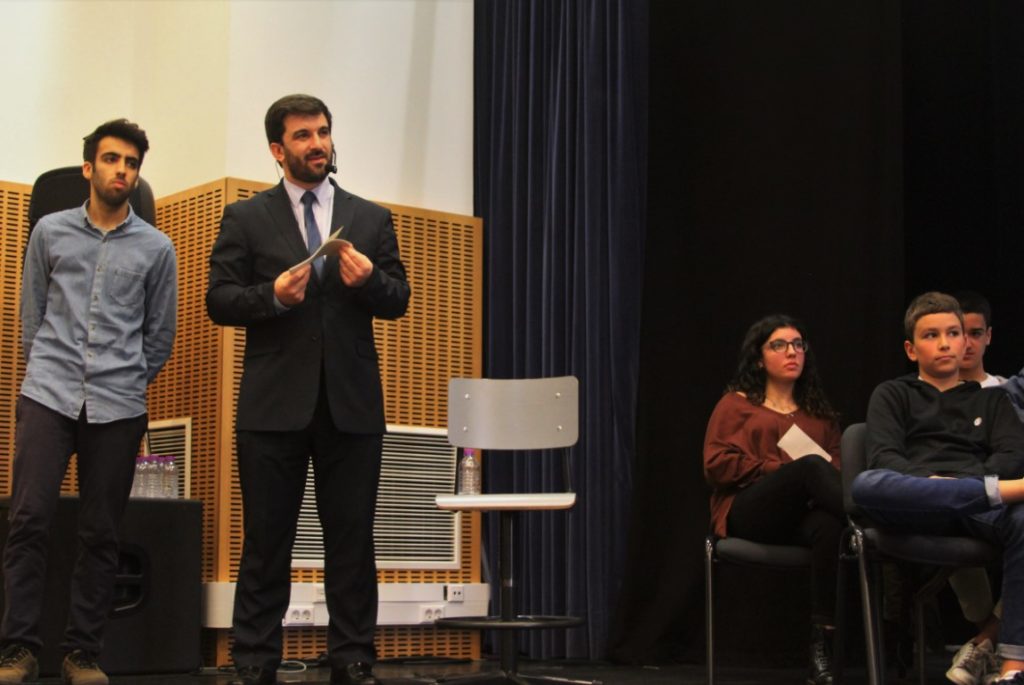
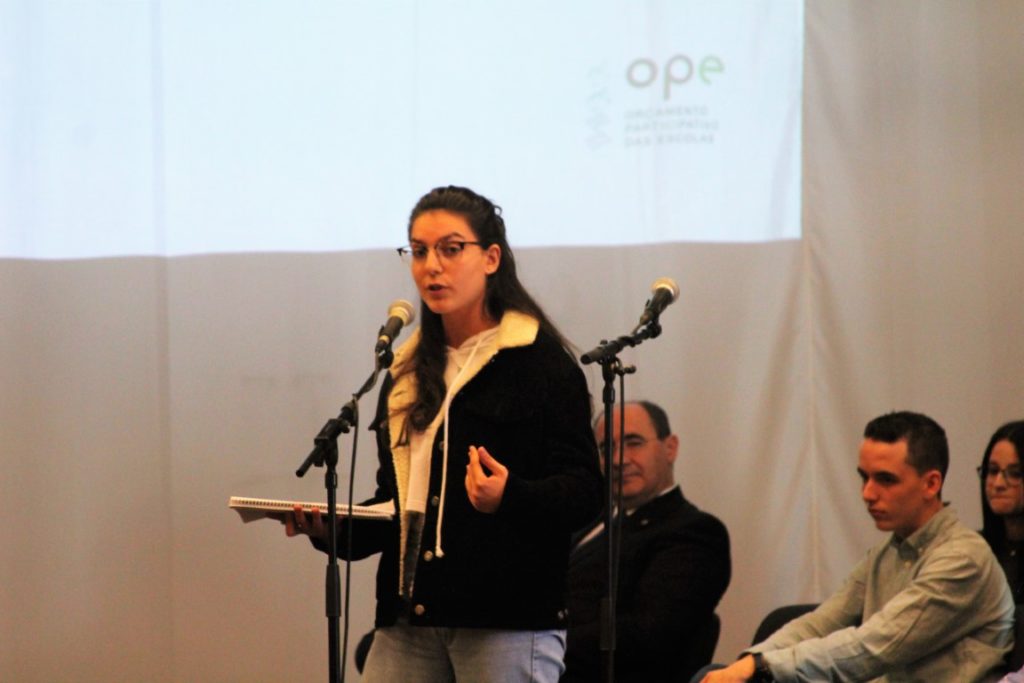
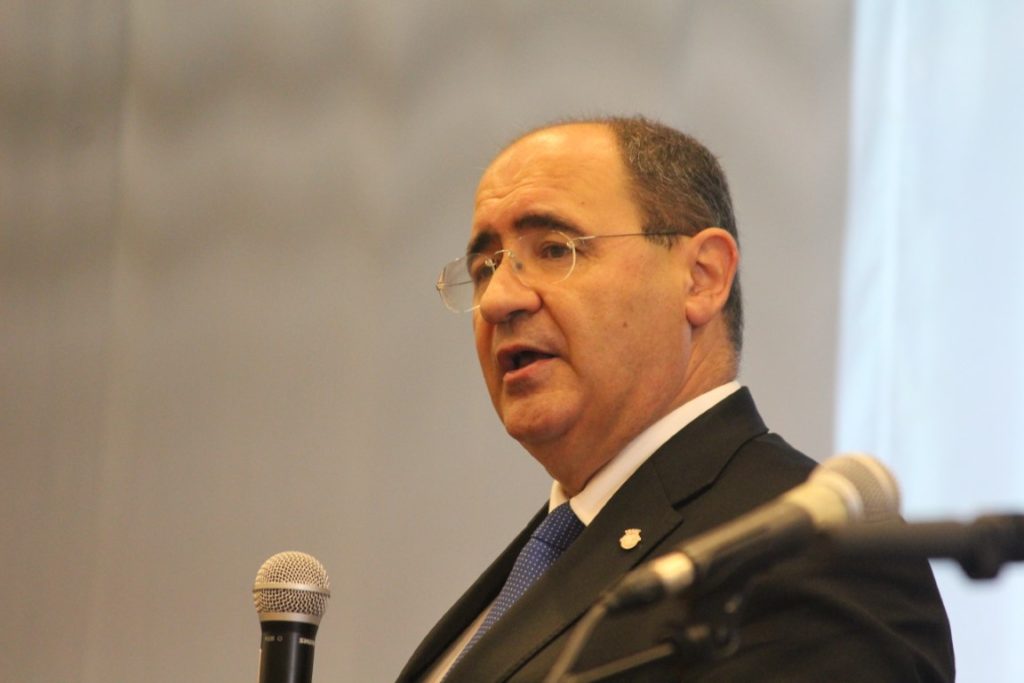
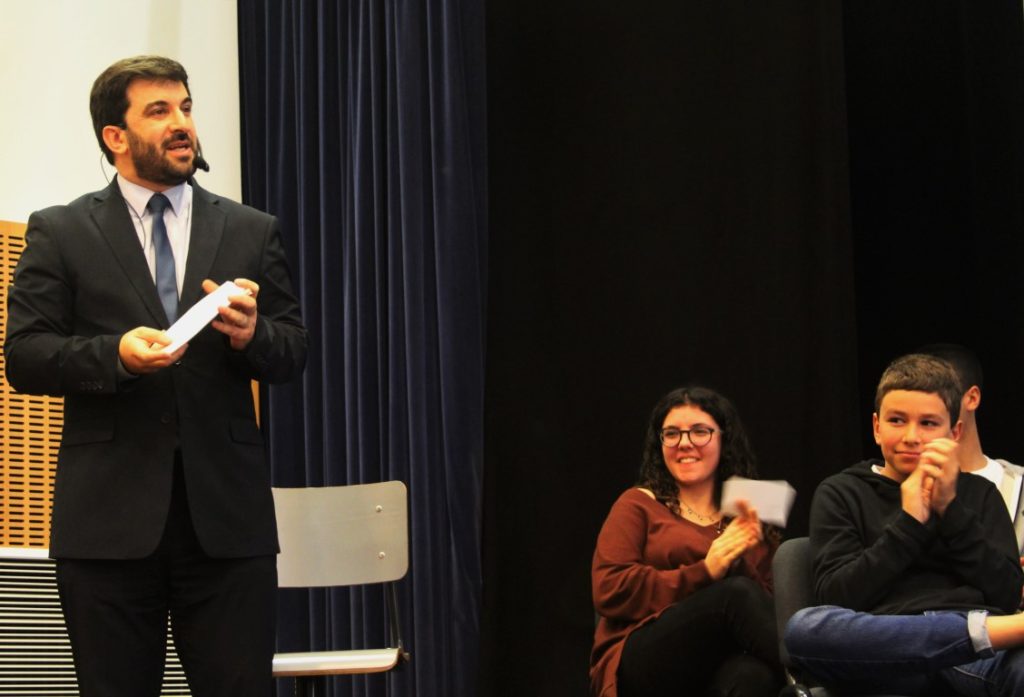
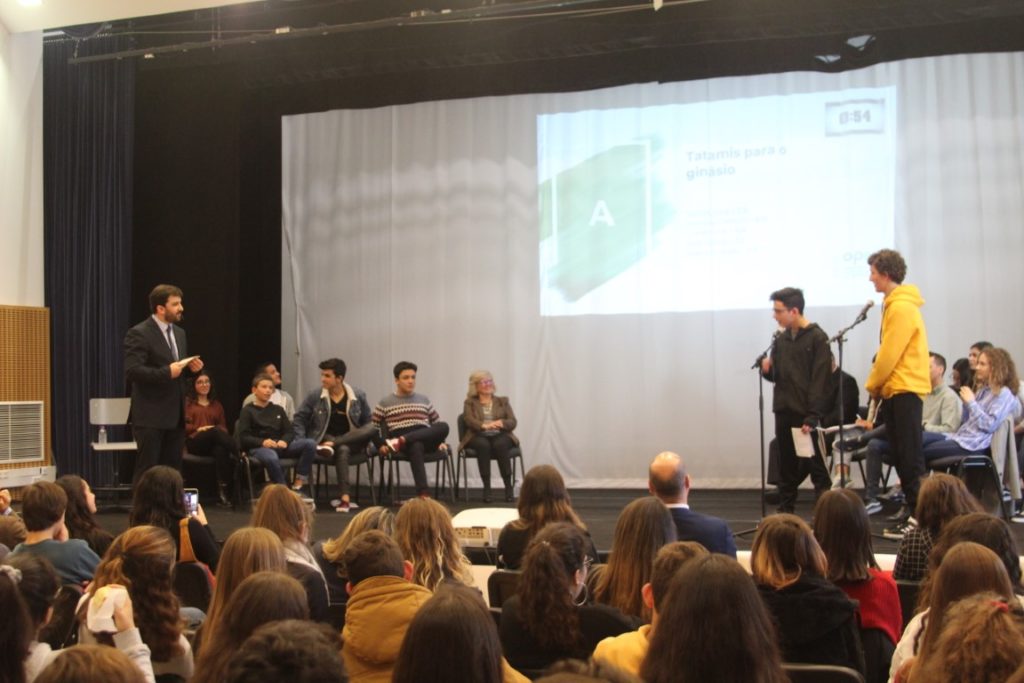
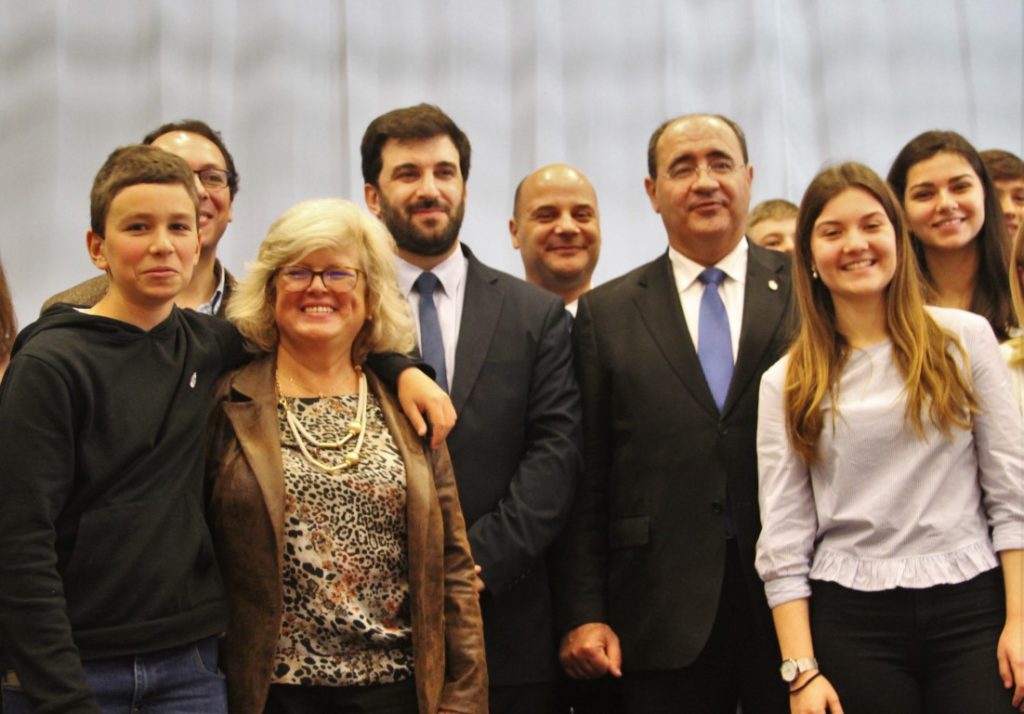
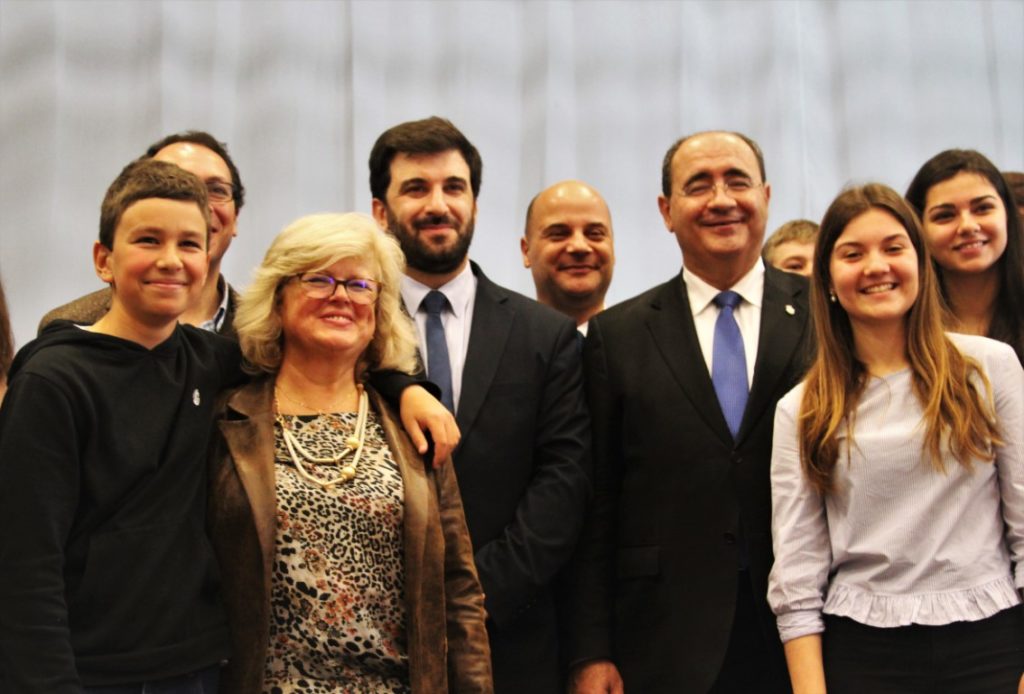

















Comments